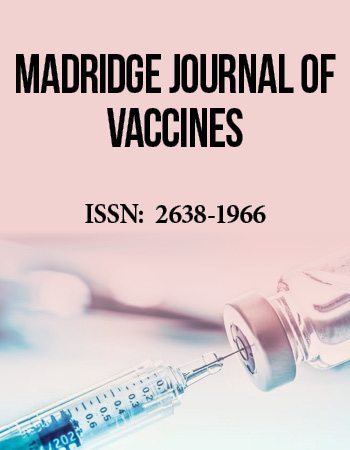International Conference on Vaccines
Feb 20-22, 2017 | Baltimore, USA
A novel vaccine strategy against pneumococcal disease based on virulence determinants not expressed during colonization
1Department of Translational Medicine, Lund University, Sweden
2Department of Microbiology and Immunology
3Chemical and Biological Engineering, University at Buffalo, USA,
4Abcombi Inc, USA
Streptococcus pneumoniae (the pneumococcus) is a human opportunistic pathogen of the respiratory tract that effectively colonizes the nasopharynx. When exposed to environmental stimuli, such as a virus infection or other inflammatory situations, colonizing bacteria can disperse and transition to infection of the sinuses, middle ears, lungs and blood. Current immunization strategies exploit the immunogenicity of the capsular polysaccharide conjugated to various toxoids. These vaccines have been very successful in protecting against invasive pneumococcal disease (IPD), but have the caveat that they show less pronounced overall protection against pneumonia, otitis media, and colonization and that they induce changes of the nasopharyngeal environment due to serotype replacement and increased colonization with other potential pathogens in the nasopharynx, such as Haemophilus influenzae and Staphylococcus aureus. To avoid potential deleterious effects on the nasopharyngeal environment we used transcriptional data of colonizing biofilm bacteria and bacteria dispersed from biofilms after exposure to virus infection or host factors associated with inflammation, cell damage, and virus infection, to identify antigens only expressed on disease-causing, biofilm-dispersed organisms. Using this approach, together with a novel liposome delivery system that does not require addition of adjuvant, we have identified several novel conserved antigens that when used for immunization showbroad protection against otitis media, pneumonia and IPD, without eliminating or affecting pneumococcal colonization. This disease-directed vaccine strategy offers a unique and dynamic vaccination option that eliminate the potential problems with serotype-replacement and is readily adaptable to other commensal pathogens in the future.
Biography:
Anders P. Hakansson trained and got his first faculty position and established his own lab at University of Alabama at Birmingham and Harvard Medical School, Buffalo, NY. He recruited back as full professor at Lund University in 2014 to present.
His lab is mainly focused on understanding host-pathogen interactions, with emphasis on respiratory pathogens, and to use this knowledge to develop novel preventive and therapeutic strategies to protect against bacterial infection. His work focuses on both the factors used by bacteria to establish colonization through biofilm formation and cause disease, and the host inflammatory response to colonization and infection. Better understanding of the mechanisms of transition to disease is used to develop novel vaccine strategies against pneumonia and otitis media; and to develop novel ways to provide novel therapeutic strategies against respiratory and other infections with antibiotic-resistant bacteria.


